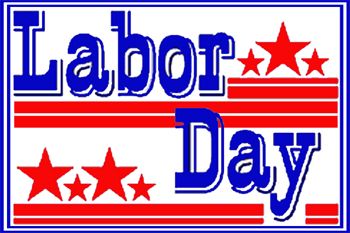- Sections :
- Crime & Public Safety
- Restaurants & Food
- Sports
- More
Categories
Labor Day: History Behind the Holiday

The Holiday for Workers
Labor Day, the first Monday in September, is a creation of the labor movement and is dedicated to the social and economic achievements of American workers. It is an annual tribute to the contributions workers have made to the strength, prosperity, and well-being of the nation.
The originator of the holiday is somewhat disputed. Some records show that Peter J. McGuire, general secretary of the Brotherhood of Carpenters and Joiners and a cofounder of the American Federation of Labor, was the first to suggest a day to honor laborers. However, others believe that Matthew Maguire, a machinist, not Peter McGuire, founded the holiday. Recent research seems to support that Mattew Maguire, the secretary of Local 344 of the International Association of Machinists in Paterson, N.J., proposed the holiday in 1882 while serving as secretary of the Central Labor Union (CLU)in New York. The CLU adopted a Labor Day proposal and appointed a committee to plan a demonstration and picnic.
The first Labor Day holiday was held by The CLU on Tuesday, September 5, 1882, in New York City.
In 1884, the first Monday in September was selected as the holiday and the CLU urged similar organizations in other cities to follow their example and celebrate a "workingmen's holiday" on that date. The idea spread with the growth of labor organizations.
The first governmental recognition of Labor Day came through municipal ordinances passed in 1885 and 1886. The first state to recognize the holiday was Oregon on February 21, 1887. On June 28, 1894 Congress passed an act making the first Monday in September of each year a legal holiday in the District of Columbia and the territories.
The labor force has played a detrimental role in the growth and prosperity of America, and on this holiday the nation honors its workers.
Labor Day, the first Monday in September, is a creation of the labor movement and is dedicated to the social and economic achievements of American workers. It is an annual tribute to the contributions workers have made to the strength, prosperity, and well-being of the nation.
The originator of the holiday is somewhat disputed. Some records show that Peter J. McGuire, general secretary of the Brotherhood of Carpenters and Joiners and a cofounder of the American Federation of Labor, was the first to suggest a day to honor laborers. However, others believe that Matthew Maguire, a machinist, not Peter McGuire, founded the holiday. Recent research seems to support that Mattew Maguire, the secretary of Local 344 of the International Association of Machinists in Paterson, N.J., proposed the holiday in 1882 while serving as secretary of the Central Labor Union (CLU)in New York. The CLU adopted a Labor Day proposal and appointed a committee to plan a demonstration and picnic.
The first Labor Day holiday was held by The CLU on Tuesday, September 5, 1882, in New York City.
In 1884, the first Monday in September was selected as the holiday and the CLU urged similar organizations in other cities to follow their example and celebrate a "workingmen's holiday" on that date. The idea spread with the growth of labor organizations.
The first governmental recognition of Labor Day came through municipal ordinances passed in 1885 and 1886. The first state to recognize the holiday was Oregon on February 21, 1887. On June 28, 1894 Congress passed an act making the first Monday in September of each year a legal holiday in the District of Columbia and the territories.
The labor force has played a detrimental role in the growth and prosperity of America, and on this holiday the nation honors its workers.
Comments •





